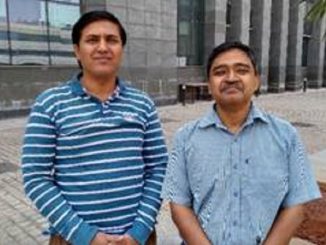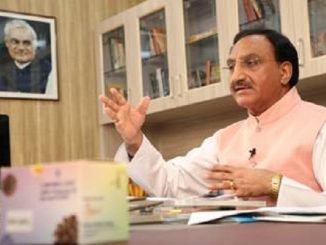
Feb 24: In Union Budget 23-24, a five-year research grant for one of the Indian Institutes of Technology (IITs) was announced to encourage the indigenous production of lab-grown diamonds (LGD) machinery, seeds and recipe.
It has been decided to give this project to IIT- Madras after a joint determination of its capabilities by a joint committee of Government, export promotion council and Industry representatives. It is proposed to establish an India Centre for Lab-grown Diamond (InCent-LGD) at IIT Madras with an estimated cost of Rs. 242.96 crores over 5 years.
Project appraisal Committee under the Chair of Commerce Secretary Shri Sunil Barthwal has recommended the proposal, which has been approved by the Shri Piyush Goyal, the Hon’ble Minister for Commerce & Industry, Textiles, Food & Public Distribution and Consumer Affairs. Budget Support will be provided during the course of the next five years.
The aim of this project is to provide, in mission mode, technical assistance to the industries, and entrepreneurs in the country, in promoting indigenous manufacturing of both Chemical Vapour Deposition (CVD) and High Pressure and High Temperature (HPHT) systems along with the recipes for expanding the Lab Grown Diamond (LGD) business at the upstream end. Research efforts would make the technology available for start-ups at affordable cost, increase employment opportunities, and increase exports of LGD thus playing a significant role in fuelling India’s economic growth.
The Gems and Jewellery sector plays a significant role in the Indian economy, contributing around 9% to India’s total merchandise export. Over the past decade, there have been several positive developments in the Gem & Jewellery sector globally. One of the major technological developments in this sector has been Laboratory-grown diamonds (LGD).
Besides the jewellery industry, lab-grown diamonds are used in computer chips, satellites, and 5G networks as they can be used in extreme environments due to their potential to operate at higher speeds while using less power than silicon-based chips. LGD has vast applications in the fields of defence, optics, jewellery, thermal & medical industries.
Globally, the market stood at $1 billion in 2020, the lab-grown diamond jewellery market is expected to rapidly rise to $ 5 billion by 2025 and exceed $ 15 billion by 2035.
The exports of cut & polished (worked) lab-grown diamonds for the last 5 years and the current year were as under:
(Values in US$ Million)
| Commodity | 2017-18 | 2018-19 | 2019-20 | 2020-21 | 2021-22 | 2022-23 (Apr-Dec 2022) |
| Cut & Polished (Worked) Lab-grown Diamonds* | 237.89 | 274.75 | 473.65 | 637.97 | 1,348.24 | 1,387.33 |
Source: DGCIS
Lab-grown diamonds are produced through 2 technologies, namely High-Pressure High Temperature (HPHT) and Chemical Vapour Deposition. India is one of the leading producers of lab-grown diamonds using CVD technology. As per industry estimates, India’s share in global trade in the financial year 2021-22 was 25.8. However, we have to depend on other countries for the supply of critical machinery components and ‘seeds’ — which are the raw material for producing synthetic diamonds.
It is, therefore, imperative that India develops its own, indigenous technology for producing the critical machinery components seeds to remove the import dependence that we have in the case of natural diamonds. Good quality lab-grown diamonds with qualified certification, produced from the developed equipment and process parameters will attract many foreign customers increasing the export volume of lab-grown diamonds and the scalability of production. The documented process parameters and the developed recipe will encourage new entrepreneurs to enter the lab-grown diamond business making it easier and cost-effective to set up the facility, start the business and generate employment.
Disclaimer: We donot claim that the images used as part of the news published are always owned by us. From time to time, we use images sourced as part of news or any related images or representations. Kindly take a look at our image usage policy on how we select the image that are used as part of the news.


